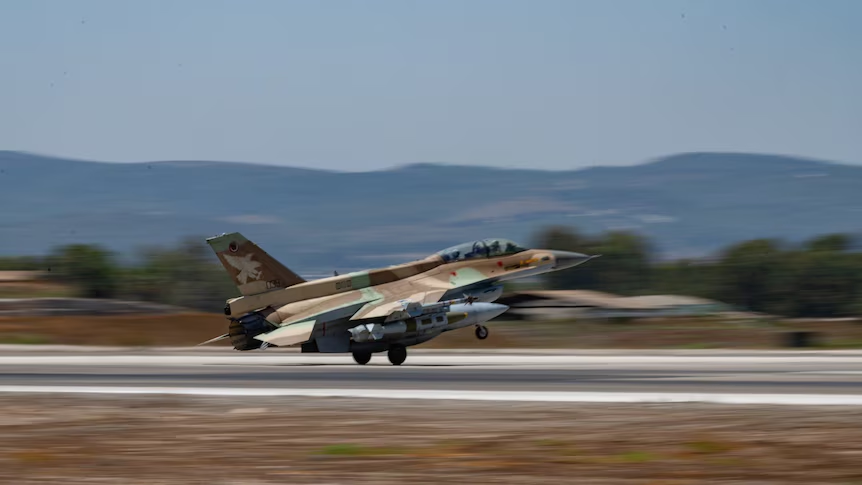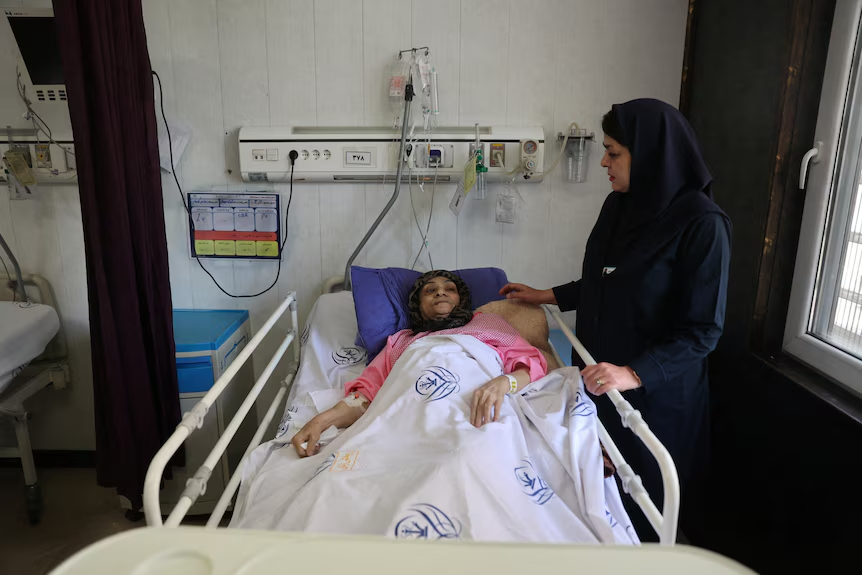
Israel
A tumultuous second week of the Israel–Iran conflict has kicked off with Israel launching a fresh round of airstrikes on Iranian military and nuclear infrastructure. The offensive is seen as part of a broader, intensifying campaign, signaling that regional tensions remain deeply volatile. Here’s a comprehensive breakdown.
Israel’s air force has confirmed that a fresh wave of air force jet attacks has been launched towards Iran, as the conflict between the two countries enters into its second week.
The air force says the fighter jets were deployed on Saturday local time to target “military infrastructure” in south-western Iran.
Israel also says it has killed a veteran Iranian commander during attacks by both sides in the more than week-long air conflict, while Tehran said it would not negotiate over its nuclear programme while under threat.
Saeed Izadi, who led the Palestine Corps of the Quds Force, the Iranian Revolutionary Guards’ overseas arm, was killed in a strike on an apartment in the Iranian city of Qom, said Israeli Defence Minister Israel Katz.
Calling his killing a “major achievement for Israeli intelligence and the Air Force”, Mr Katz said in a statement that Izadi had financed Hamas ahead of its October 7, 2023, attack on Israel, which triggered the war in Gaza.
The Revolutionary Guards said five of its members died in attacks on Khorramabad, according to Iranian media. They did not mention Izadi, who was on US and British sanctions lists
Iranian media said earlier on Saturday that Israel had attacked a building in Qom, with initial reports of a 16-year-old killed and two people injured.

What’s Happening on the Ground
- New Israeli strikes: The Israeli Air Force has dispatched fighter jets to bomb military facilities in southwest Iran. Tehran confirms the killing of a senior Iranian commander amid at least 430 fatalities in Iran and 24 deaths in Israel so far.
- Iran’s missile and drone retaliation: Tehran continues to launch waves of missiles and drones at Israel. Most have been intercepted by the Israeli defense systems, but some have caused damage in cities like Haifa and Beersheba .
At least 430 people have been killed and 3,500 injured in Iran since Israel began its attacks on June 13, Iranian state-run Nour News said, citing the health ministry.
In Israel, 24 civilians have been killed by Iranian missile attacks, according to local authorities, in the worst conflict between the longtime enemies.
Israel says Iran was on the verge of developing nuclear weapons, while Iran says its atomic programme is only for peaceful purposes.
Humanitarian Toll & Regional Fallout
- Civilian casualties rising: Iranian state media reports over 430 deaths and thousands injured. In Israel, more than 24 people have died, with hundreds wounded.
- Civilians urged to evacuate: Iranian authorities continue to urge residents near military sites and nuclear facilities to evacuate amid repeated airstrikes.
- Cross-border consequences: Retaliatory Iranian missiles hit civilian targets including hospitals—most notably, Soroka Medical Center in Beersheba—inflicting injuries and heightening fears of war crimes
🧩 Diplomatic Pressure & Global Response
- UN appeals for calm: The United Nations Security Council convened at Iran’s request to address the escalation, with calls for restraint echoing across global leaderships .
- No nuclear talks for now: Iran has refused to return to diplomatic nuclear negotiations while under military assault.
- European mediation efforts: French President Macron said efforts are underway to revive peace talks, but no breakthrough has yet been achieved .
🔎 What to Watch Next
- Iran’s next move: Will Tehran escalate further? The world awaits Iran’s military and political response—with potential for deeper missile attacks or proxy mobilization .
- U.S. military decision: President Trump has two weeks to decide if America will join Israel’s campaign—as U.S. bombers stand ready for deployment.
- Diplomatic breakthroughs: European-led negotiations must rapidly progress, or the conflict risks devolving into a protracted regional war.